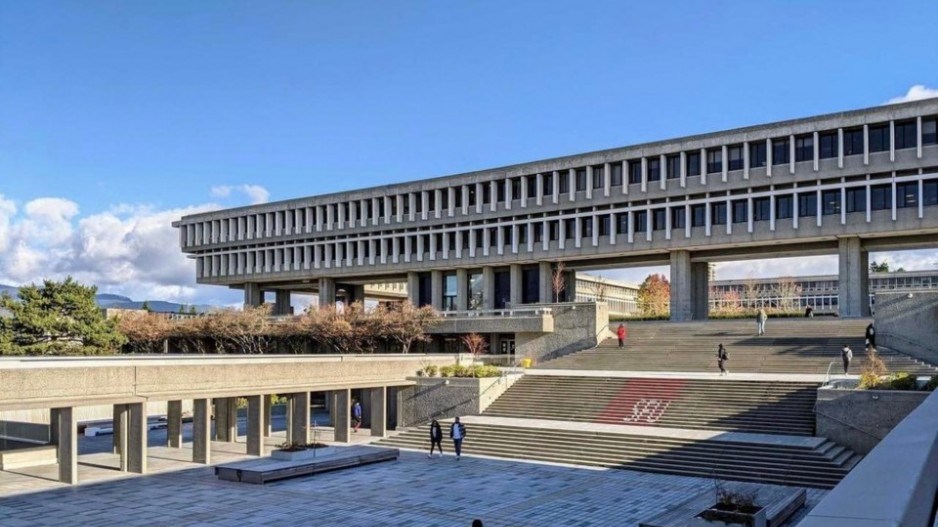Two months after the NCAA Division II’s Lone Star Conference told Simon Fraser University (SFU) to find somewhere else to play football in 2024, the university’s president announced the 1965-established program was over immediately.
But, at a private meeting, a player asked athletic director Theresa Hanson why the Red Leafs could not play one more season this fall.
“It doesn't seem like there's any real reason other than, like I said, save money, save face, business decision, whatever it may be,” said the player posted April 4 on Facebook. “Just because there isn’t anything for 2024 doesn't mean we can't have something now.”
“It's very difficult, the uncertainty is very difficult,” Hanson replied, while standing on a stage beside Wade Parkhouse, SFU’s vice-president, academic. “We’ve had this uncertainty since January. The decision to not play this year, we could not go another five months without saying anything. That’s not fair to you. The university made a very difficult decision and came to this conclusion and felt it was in the best interest to announce it now.”
SFU president Joy Johnson’s April 4 open letter said the university would support players by helping them transfer elsewhere and honour the scholarships of eligible students who want to remain at SFU for the 2023-2024 school year. But Johnson offered no further details about why the program had to end last week.
A request to interview Johnson about whether the university conducted a cost-benefit analysis, or whether it exhausted options to transfer to the National Association of Intercollegiate Athletics or Canada’s U-Sports league, was denied. SFU media relations director Braden McMillan said Johnson was “not available.”
Jim Mullin, the president of Football Canada, said he was stunned by the announcement because there was no consultation with any of the stakeholders, be they players, coaches, alumni, the BC Lions, or football’s provincial or national governing bodies.
It also happened less than two years since the opening of the $20 million SFU Stadium at Terry Fox Field on the Burnaby Mountain campus.
“There's 27 other teams across this country playing university football, and as much as they're competitive, it's like NATO. You attack one, you attack all 27,” Mullin said. “So, in terms of Football Canada, we're standing by Simon Fraser and their football program in this case, to try to find a way to make sure they play in 2023, and try to be a part of that dialogue to get them back into 91原创 competition in 2024, so we don't have to contemplate a loss of 100 to 125 spots for young men to play football.”
Mullin said he does not buy the SFU line about “uncertainty” and believes it was really a cost-cutting measure. “This announcement was made a day-and-a-half into the start of a new fiscal year.”
Glen Orris, a 91原创 criminal lawyer and former wide receiver who graduated from SFU in 1968, is a director on the SFU Football Alumni Society. The society has launched an online petition and Orris hopes alumni can find a way to persuade SFU to play in 2023.
Orris called being recruited out of Winnipeg as a 17-year-old a “life-changer” in 1965 when football, track and field, basketball and swimming were the core sports at the fledgling university.
“It was the first school that was publicly giving scholarships for athletics,” he said.
Orris said those hoping to save the program could file for a court injunction on the basis of a breach of contract suffered by athletes recruited to play for the Red Leafs.
“I'm hoping we don't have to do that, but nobody's prepared to walk away from this without a full airing of what's going on,” said Orris, who played two seasons in the CFL with the Winnipeg Blue Bombers.
“If it becomes apparent that there is no way to go forward, well, okay, we'll have to face that when it happens. But nobody is prepared to concede that at this stage and there’s a lot of angry people out there.”

